Love in the Lockdown: Writer Clare Norburn and star Alec Newman tell all
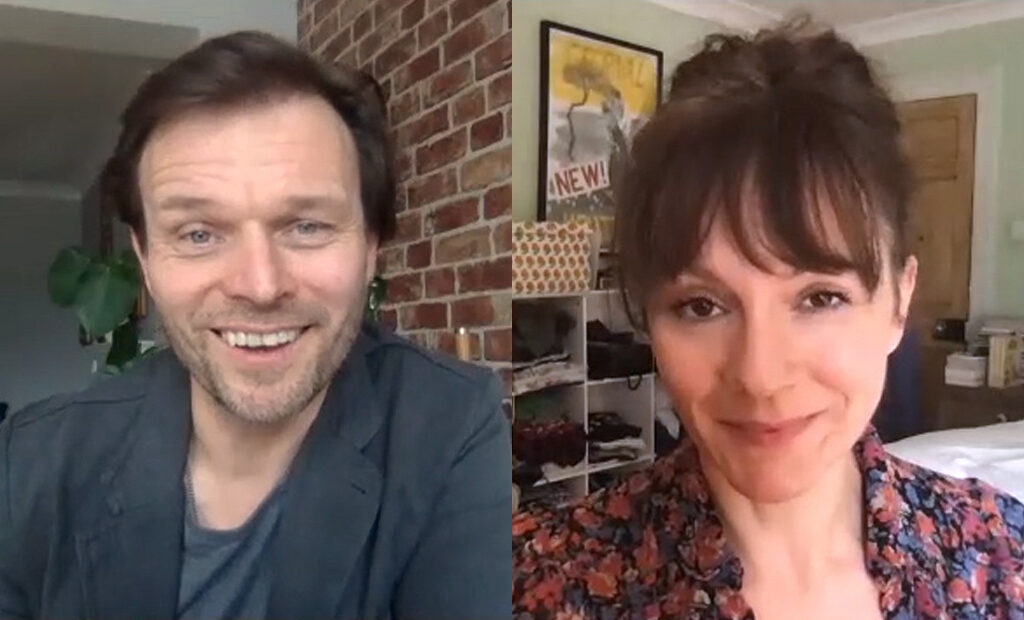
Rachael Stirling and Alec Newman will be starring in a new online play due to be released in nine episodes from 4th March to 23rd May 2021. Love in the Lockdown explores the blossoming relationship of a playwright and a medieval musician against the backdrop of the March 2020 lockdown. They soon begin collaborating on a retelling of The Decameron by Boccaccio, which explores another pandemic – the Plague in the 14th century. We caught up with playwright Clare Norburn and actor Alec Newman to find out more.
Where did the inspiration for Love in the Lockdown come from?
Clare Norburn: As well as writing, I am a singer who specialises in music from the Middle Ages. Everything I have written has been inspired by exploring what happens when music and drama collide. Music has that particular quality of “unlocking memories” and giving insight into a character’s inner world.
At the start of the pandemic, with all plans for 2020 cancelled, I applied for an Arts Council England Emergency Response Fund grant. And when thinking about what I might realistically do, under lockdown conditions, I remembered The Decameron by Boccaccio. Set in Florence in 1348, The Decameron opens with Boccaccio’s own experiences of the Black Death. He goes on to write a “14th Century box set” of 100 stories and songs, told by ten young people to while away their time in quarantine.
It seemed really topical, and a way in which to provide a framework for some medieval music from that time. So, I started to stitch together a pandemic love story. I invented a playwright, Giovanni, and a medieval musician, Emilia – and I imagined that my medieval group, The Telling, were Emilia’s ensemble.
How would you describe the plot of Love in the Lockdown?
CN: Love in the Lockdown is an online play with music in nine short episodes. It will be released in real time on the first anniversary of key points in the build-up to, and during, lockdown 1.0 from 4th March to 23rd May.
Playwright Giovanni (Alec Newman) and medieval musician, Emilia (Rachael Stirling) meet at a dinner party at the end of February 2020. We first meet them five days later, in episode one, as they set up their first date. Subsequent episodes see the development of their relationship under lockdown conditions, alongside their creative collaboration, inspired by the book The Decameron by Boccaccio.
Giovanni reimagines The Decameron as a show for 2020, drawing out parallels with the Covid-19 pandemic, while Emilia and her ensemble, played by real life medieval music group The Telling, plan the music.
Alec Newman: A playwright and a medieval musician meet and hit it off at a Hampstead dinner party. Just as their creative and romantic connection begins, the first lockdown hits, bringing all the challenges and loss of physical connection we are now familiar with. Under these conditions, and using all the tech we are now so used to (Zoom etc), they navigate their way through their early relationship, both with each other and a shared project to adapt Bocaccio’s Decameron.
What parallels do you see between Covid-19 and the Plague? What could that past epidemic teach us?
CN: In his introduction to The Decameron, Boccaccio sets the scene, talking about his own experiences of the Plague in 1348. It’s all there: the Covid-deniers, the imbalance between how rich and poor are treated, the need to blame someone for the source of the virus. It amazed me that, even though in 2020 we had the might of medical science at our disposal, the sense of powerlessness was just the same as 1348. I think it teaches us that human nature doesn’t change much – and that we are not as in control of our destiny as we think we are.
AN: Both Covid and the Plague have/had a huge influence on society, not least by altering the way we have to live and instilling a universal fear, not just of the disease, but of each other. The parallel that Giovanni uses in the play is that, with both the Black Death and Covid, people went into self-isolation and needed ways to keep entertained and stimulated.
Where did the idea to stream the episodes on the anniversary of key Covid-19 events come from?
CN: Streaming the episodes in real time a year on was a happy accident. I wrote the first draft just as we were coming out of lockdown. By the time it was done, my company, The Telling, and our director, the wonderful Nicholas Renton (Mrs Gaskell’s Wives and Daughters, Lewis, Musketeers, George Gently) had just done a huge stint filming two of our touring productions. We were tired, so we decided to postpone filming – and it was only at that point that I realised it could be interesting to release the show in real time on the anniversary of each scene.
There’s something about a first anniversary that has a particular intensity. You are still close enough to “smell” the direct experience and yet you also have enough distance to see the landscape around it. Add the cycle of the seasons: how the smell of cherry blossom takes you directly back to that moment a year ago when…. and as soon as I had that idea, I saw the potential of releasing it in short episodes.
Could you tell us more about how the central relationship in Love in the Lockdown was based on your personal experiences?
CN: The similarity is that I was three months into a relationship when lockdown started. I didn’t see my boyfriend for nearly eight weeks. We had candlelit dinners over Zoom – just like Giovanni and Emilia. And when lockdown restrictions start to be lifted, then Giovanni’s frustration, in episode seven, about not being able to touch or kiss Emilia, and her worry about the neighbours seeing them together, was my experience too.
When I first saw my boyfriend, he parked outside my flat and I felt like all the neighbours were watching. We walked down the road sedately, two metres apart, turned the corner out of sight and then kissed. This was just before bubbles were allowed.
So, in that respect, the frustrations of separation were something that I experienced and which I wanted to write about – because at the time, it felt like no one dared to talk about the experiences of partners who couldn’t be together. It was a strange time and part of me felt like we would never see or touch each other again.
How would you describe your character and how do you think he responded to the lockdown?
AN: Giovanni is recently divorced and lives alone. He’s personally invested heavily in his writing career but somehow craves more excitement – a bit like a distracted teenager. I guess the project and newly kindled romance with Emilia helps give him that, while the restrictions may intensify his and Emilia’s Zoom encounters somewhat.
What was it like to create an episodic play over Zoom? Did the cast and crew get to meet in real life at all?
CN: It was surprisingly exhausting being on Zoom for extended periods. I think we all found that. At first I was nervous about whether it would work. Nicholas Renton, our director, is brilliant at taking everything one stage at a time, and everyone was so open to trying new things. After we had shot and edited the first two episodes, we knew we had something.
Sadly, we didn’t get to meet in real life. Having worked on shows which bring together musicians and actors, I know that there is a wonderful “love in” moment when the actors and musicians get together in the same room for the first time – so it’s sad we couldn’t share that on this project.
AN: Initially it was tough to get used to a new medium. Ironically (given the subject), feeling like there was a connection that would be tangible on camera (Zoom!) was tricky. But we soon felt comfortable. We just had to trust we were getting something!
What message do you hope people will get from Love in the Lockdown?
CN: Both characters are on a journey about who they are, personally and artistically. They both are stronger people by the end of the play. In fact, I realised after I had written it, that Love in the Lockdown is a kind of La La Land in a Pandemic.
The characters in La La Land challenge each other not to “sell out” to corporate demands but instead to follow their creative dreams. Likewise, Giovanni and Emilia come to recognise their “artistic core” through what happens to them. It’s also about the relationship between creativity and commercialism. Giovanni is offered his dream TV opportunity and has to work out if he can keep true to his artistic and personal ideals. What matters more: that opportunity, or being true to himself? At the end, both have a recipe for living the rest of their lives – quite what that is you will have to watch and see!
AN: I hope people who see LITL will become invested in Giovanni and Emilia’s story, not just narratively, but because it’s set in a world that we all lived in a year ago. It’s fresh and sort of more immediate that way. There’s also something about the disconnect of lockdown being slightly deadly to our better nature – we need that contact romantically but also creatively.
What impact do you think the limitations of lockdown have had on the arts?
CN: So many freelancers are suffering and I wanted to reflect that in the play. Emilia falls through the cracks of government support and is forced to take a job in a supermarket, stacking shelves in order to pay her rent. She comes home, wanting to work on the project, but is emotionally, physically and creatively drained. Like so many artists in the face of lockdown, she loses a sense of her own creativity. She stops making music.
I have been lucky in having the energy and people around me to find ways to keep creating, but I know that that isn’t everyone’s experience. Ultimately though, I still have hope. It’s been tough and will continue to be. But artists have found ways to adapt and be creative. So I have a hope that perhaps we are forging a resilient breed of artists who will have gained new insights and compassion through their experiences – who will be able to grasp on to what really matters, and to reflect that in our art.
AN: Lockdown and Covid put a full stop on theatre, certainly for a while. I worry about some of the grass roots work being wiped away forever, but part of me is optimistic. I sense it will come rushing back. People need to escape now more than ever. The sharp focus and thrill of theatre, when it’s good, is one of the most powerful ways of doing that. I just hope the financial situation won’t make everything even more commercial and shrink the other work that fuels the industry.
What’s next for the both of you?
CN: I am fundraising for my next project with The Telling, I, Spie: musicians have always made good spies, working at court and so able easily to overhear discussions and to travel without suspicion. I, Spie starts with the supposition that the composer John Dowland really was a spy. The show will draw together what we know about Walsingham’s networks and practices, the life and death of Christopher Marlowe (the most famous creative spy contemporary), the life and music of Dowland himself, and the street and courtly music of Elizabethan/early Jacobean London.
It will transport the listener into the world of Elizabethan espionage, with a few surprising twists along the way. Beyond that I am tempted by a live show sequel to Love in the Lockdown. We’ll have to see…
AN: Next I’m appearing in a film about Nipper Read, the detective who is generally considered to have brought down the Kray twins in the 60s. It’s exciting, but I suspect I’ll miss filming on Zoom – for a few days at least!
Sophia Moss
Love In the Lockdown is available to stream via YouTube. The nine episodes will be streamed at intervals from 4th March until 23rd May 2021. For further information visit The Telling’s website here.


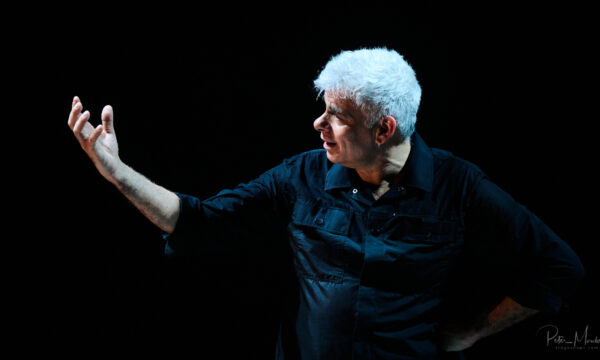
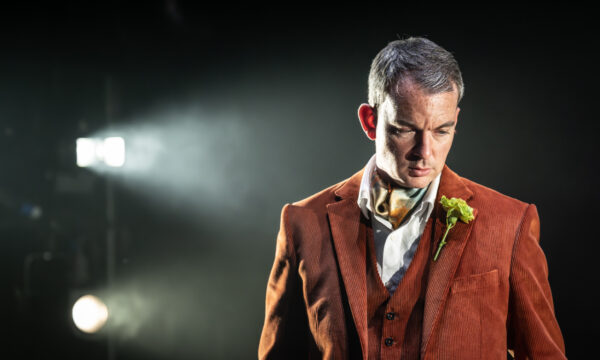
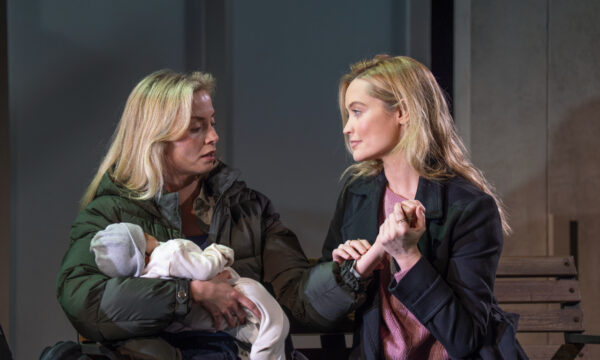
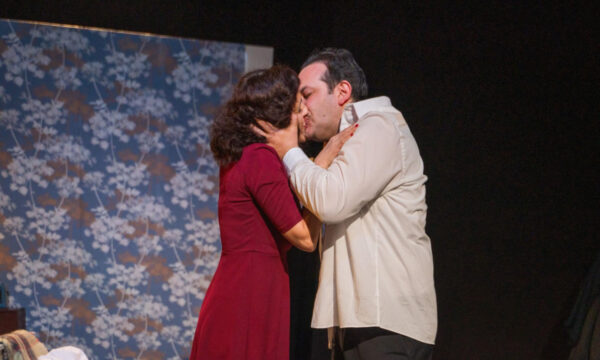
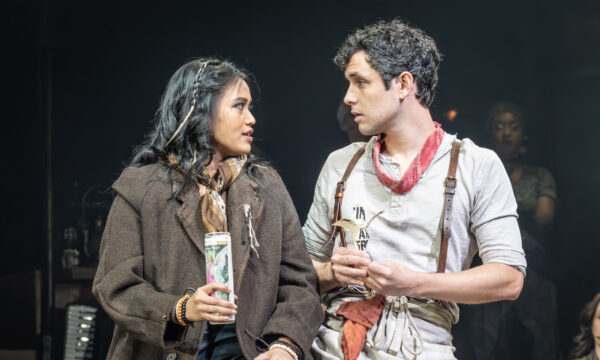
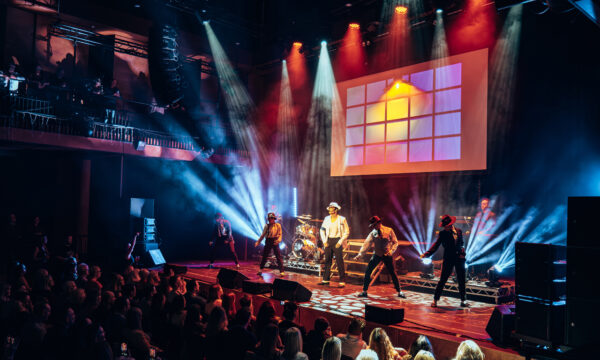
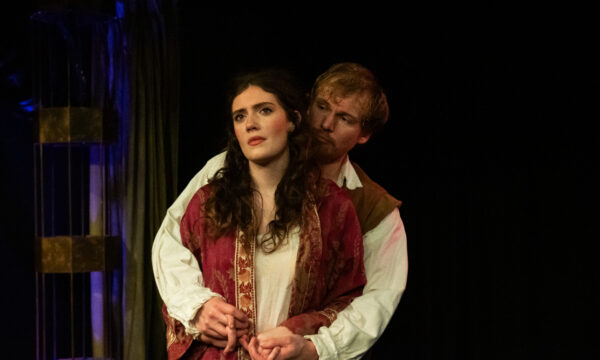
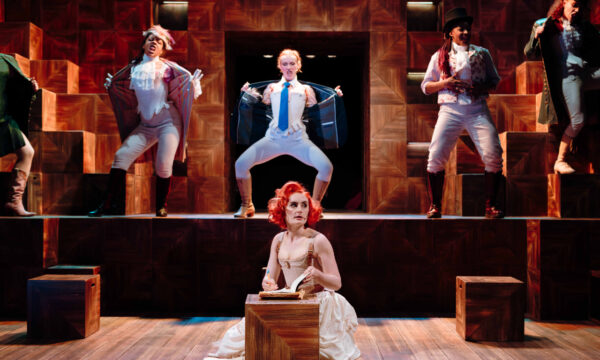
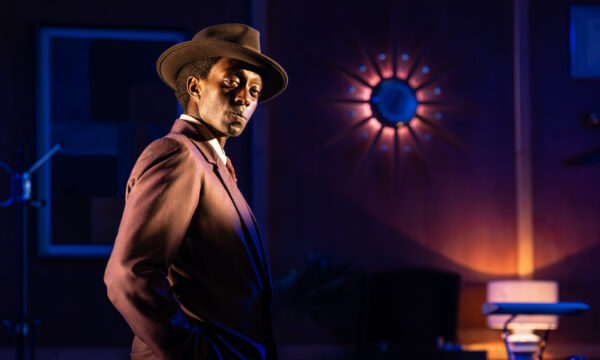










Facebook
Twitter
Instagram
YouTube
RSS